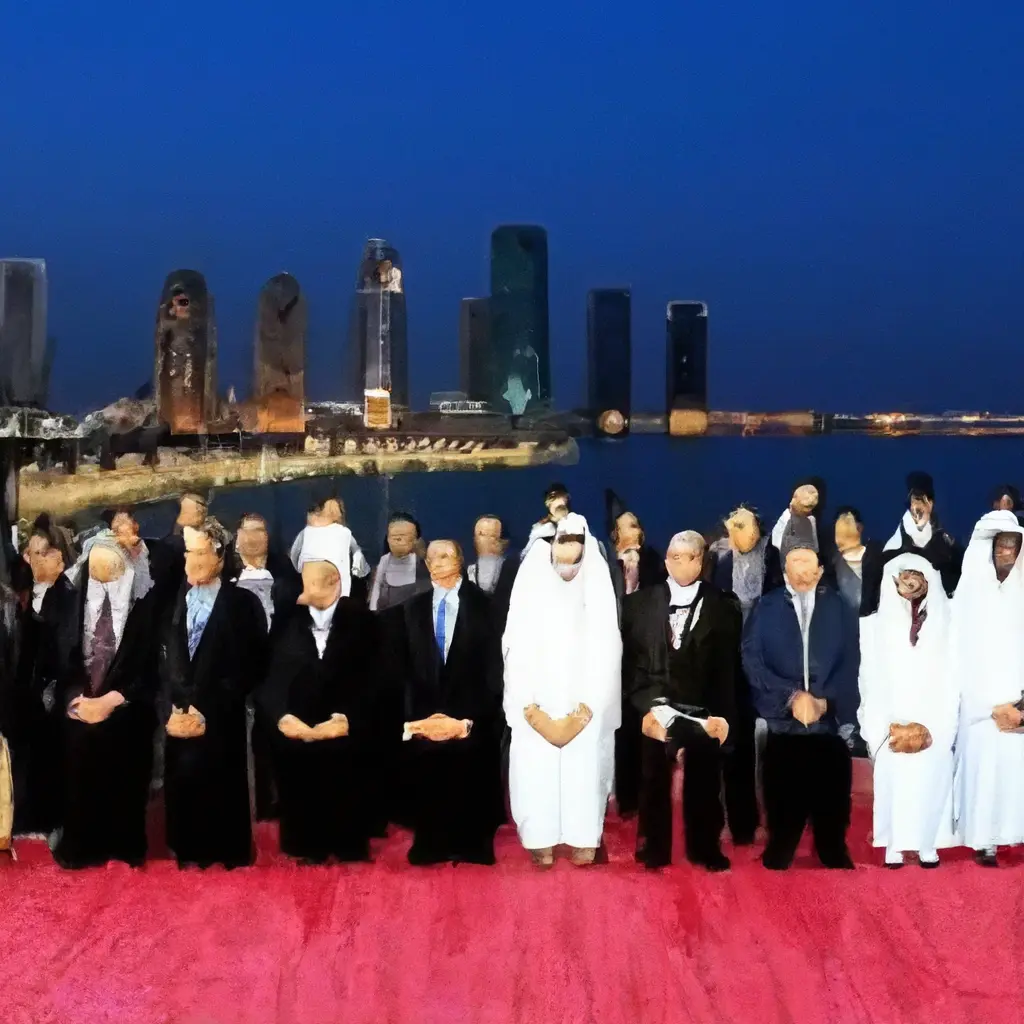Far from the hardships of Gaza, an easy life in Qatar for the Hamas chief and his family.


Shortly after Hamas launched its brutal attack against Israel on Oct. 7, a video began circulating showing the terror group's leader, Ismail Haniyeh, in his elegant office in the Qatari capital Doha, watching, as the carnage unfolds on Al Jazeera, and then "bows in gratitude" along with a group of other Hamas members for killing more than 1,300 Israelis, among them at least 1,000 civilians.
For years, Haniyeh has been condemned by many Palestinians for leading a comfortable life away from the hardships of Gaza in the oil-rich Gulf monarchy, which provides a safe haven for the terror group's leaders and an internationally recognized platform to spread its propaganda through Al Jazeera.
Before Hamas won the Palestinian elections against Fatah in 2006, Haniyeh was not a prominent member of the terrorist group's leadership. After his electoral victory, his star began to rise.
He was appointed prime minister of the Palestinian Authority in the Gaza Strip, and his wealth grew rapidly thanks to the control he and other Hamas government ministers exerted over the Gaza economy and the taxes they levied on goods entering the Strip from Egypt.
According to Israeli news site Ynet, senior Hamas members, including Haniyeh, levied a 20 percent tax on all trade passing through the tunnels.
A PA official said that the tunnel smuggling market has turned 1,700 senior Hamas officials into millionaires, according to Saudi weekly Al-Majalla.
In 2010, Haniyeh spent $4 million to purchase a plot of land on the Gaza coast near the Shati refugee camp where he grew up and registered it in the name of his son-in-law, according to the Egyptian magazine Rose al-Yusuf.
Since then, Haniyeh has purchased several apartments, villas and buildings in the Gaza Strip registered in the names of some of his 13 children.
His luxurious assets are in stark contrast to the chronic poverty in the Gaza Strip, where about half the population is unemployed and the GDP per capita in 2021 was about $5,600 a year, making it one of the poorest places in the world.
Some experts blame the slow economic growth on Israeli-Egyptian Israel says the restrictions are necessary for security reasons to prevent Hamas from arming Hamas and building tunnels into Israel. There is also a widespread perception of corruption.
Gaza's economy is heavily dependent on foreign aid, with Qatar topping the list of donors - it is estimated that the Gulf monarchy has contributed more than $1.5 billion over the past decade, although the money has been distributed in the form of stipends for officials and poor families rather than for economic development.
The rift between Hamas leaders and Gazans stretches far beyond their bank accounts, with the supremacy of the terrorist group and their families seemingly able to leave the besieged enclave at will, a privilege few Gazans can enjoy.
On December 30, 2022, the Saudi news website Elaph published an article in which a "knowledgeable Palestinian source" said that Haniyeh Maaz's son, known in Gaza as Abu al-Ikarat, had obtained a Turkish passport that allowed him to easily leave Gaza and travel abroad, as well as invest in real estate in Turkey.
The article also alleged that Maaz and other sons of the Haniyeh family consumed alcohol abroad and spent time with women other than their wives in luxurious nightclubs.
13 May 2025
14 May 2025
In July 2022, a document with an official list of travelers allowed to leave Gaza through the Rafah border crossing was published on Palestinian social media. Among the names was that of Haniyeh's son Hazem, as well as his wife and two children, who left Gaza to join other members of the Haniyeh family in Turkey.
The revelation sparked a social campaign against the Hamas leadership called "Our Hands Are Clean," a rarity in the Strip, where political insubordination is usually not tolerated.
According to the Middle East Studies Research Institute (MEMRI), the title was an allusion to a speech Haniyeh gave in 2009, on the 22nd anniversary of Hamas' founding, in which he said: "Our hands are clean. We don't steal money, own real estate or build villas....".
This year, Hamas held a festive iftar (evening meal after the end of fasting) in the Qatari capital Doha for some 30 diplomats from Arab and Islamic states and several "friendly non-Arab countries," as well as Qatari ministers and members of parliament.
The event, publicized on Hamas' online platforms, was held at the Doha Diplomatic Club, a testament to the high status Hamas enjoys in the Gulf monarchy. Participants included the ambassadors of Iran, Turkey, Afghanistan's Taliban regime and Russia, as well as "the security adviser of a major European country," according to al-Arabi al-Jadid newspaper.
Comment
Popular Posts
Popular Offers

Subscribe to the newsletter from Hatamatata.com!
Subscribe to the newsletter from Hatamatata.com!
I agree to the processing of personal data and confidentiality rules of Hatamatata














